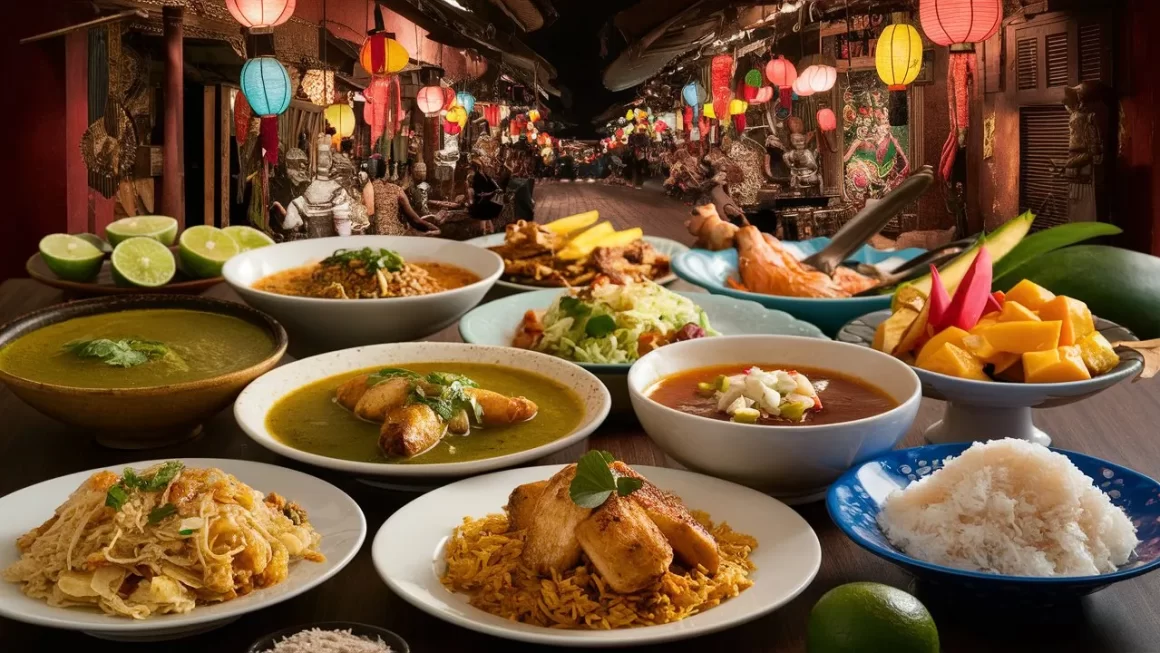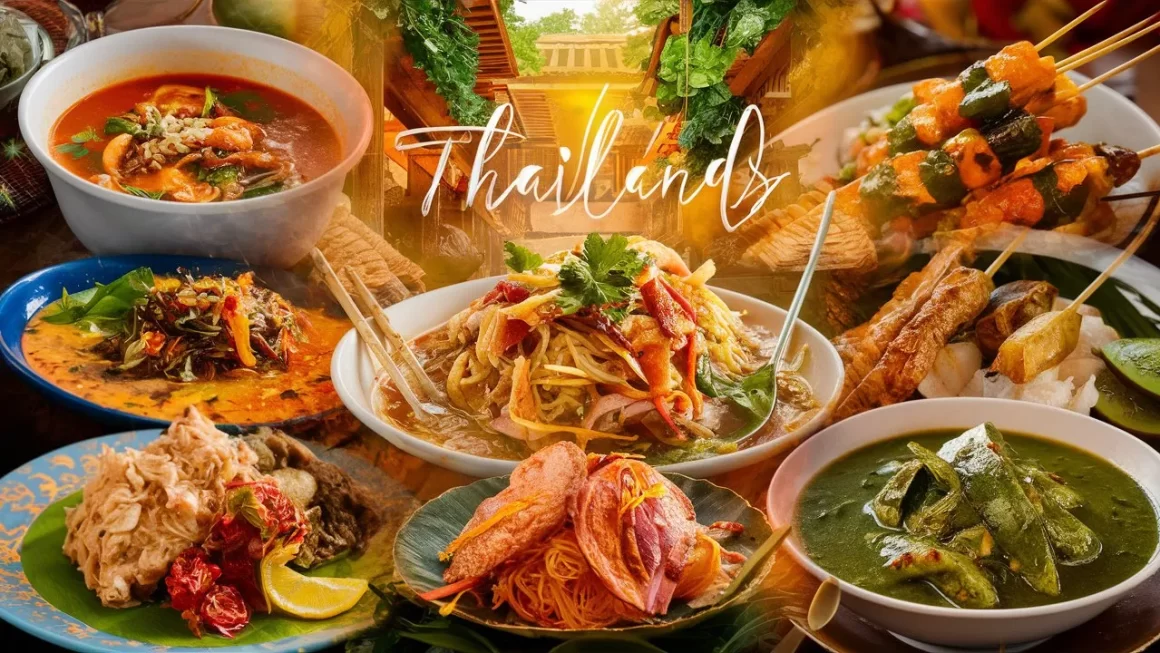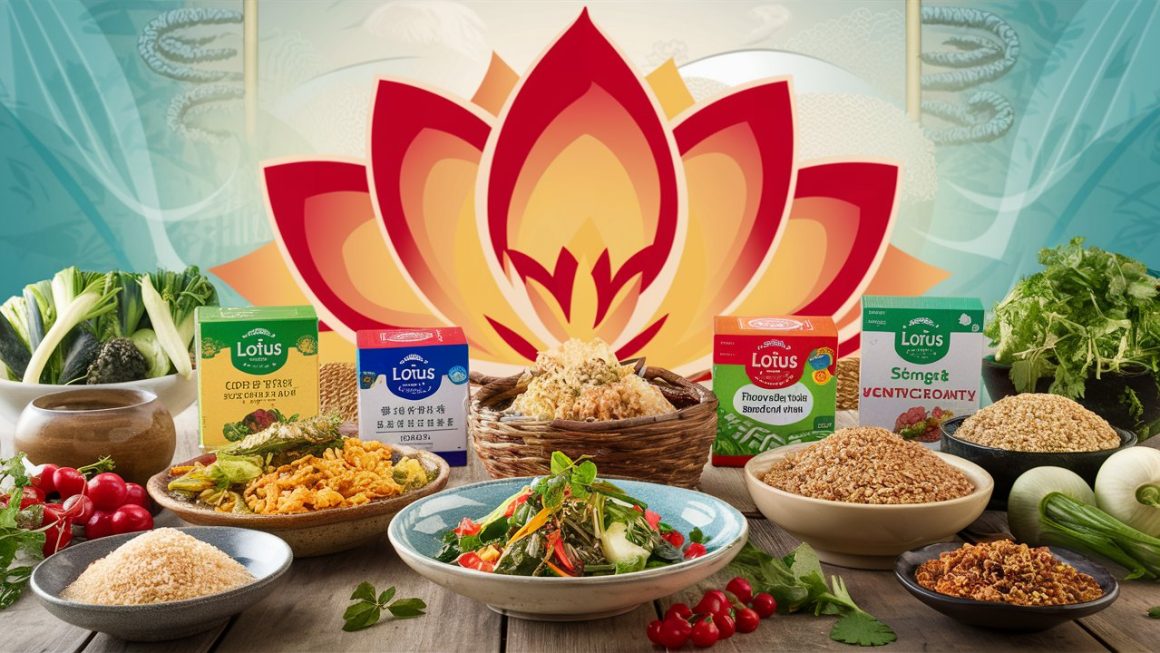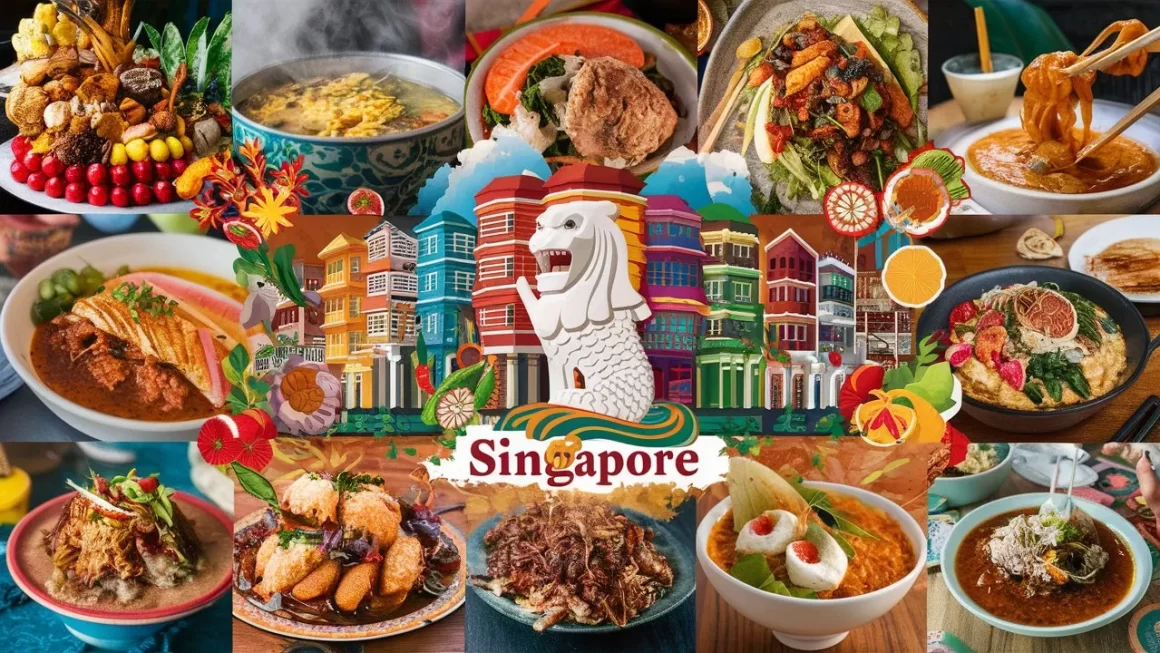Table of Contents
Traditional Thai food is a feast for the senses. Its rich flavours, vibrant colours, and aromatic spices offer an unforgettable culinary experience. In this article, we will explore the essence of traditional Thai food, delving into its most beloved dishes and the ingredients that make them unique. Whether you’re a food enthusiast or a curious traveller, discovering traditional Thai food is a journey worth taking.
The Essence of Traditional Thai Food
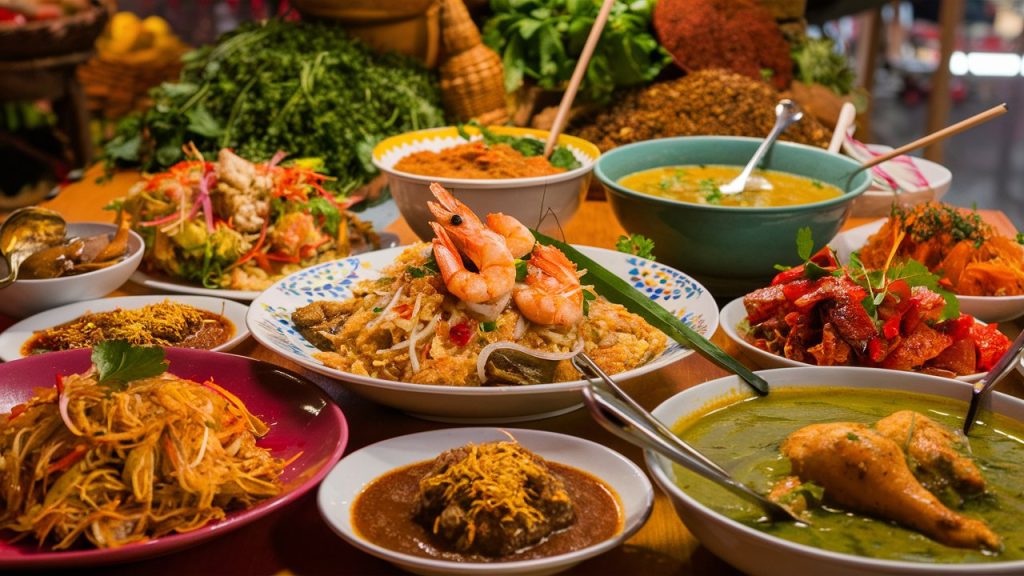
Traditional Thai food is known for its balance of sweet, sour, salty, and spicy flavours. Each dish is carefully crafted to achieve a perfect harmony of tastes.
Key Ingredients
The foundation of traditional Thai food lies in its fresh ingredients. Standard components include lemongrass, galangal, kaffir lime leaves, and Thai basil. These ingredients are often combined to create the distinctive taste of Thai cuisine.
Cooking Techniques
Thai cooking techniques emphasize simplicity and speed. They often involve stir-frying, grilling, and steaming, which help retain the ingredients’ natural flavours and nutrients.
Must-Try Traditional Thai Dishes
Several iconic dishes represent the best of traditional Thai food. Here are some you must try:
Pad Thai
Pad Thai is a stir-fried noodle dish that is both savoury and slightly sweet. It is made with rice noodles, shrimp or chicken, tofu, eggs, and bean sprouts and garnished with crushed peanuts and lime wedges. The sauce, made from tamarind paste, fish sauce, and palm sugar, gives it its unique flavour.
Tom Yum Goong
Tom Yum Goong is a hot and sour soup featuring shrimp, mushrooms, and a fragrant broth infused with lemongrass, kaffir lime leaves, and galangal. Adding chilli and lime juice gives it a spicy and tangy kick.
Green Curry (Gaeng Keow Wan)
Green curry is a creamy, spicy dish made with green paste, coconut milk, and various vegetables and meats. The paste, which includes green chillies, garlic, and Thai basil, provides a vibrant green colour and bold flavour.
Exploring Thai Street Food
Street food is an integral part of traditional Thai food culture. It offers a glimpse into the everyday culinary practices of the Thai people.
Som Tum (Papaya Salad)
Som Tum is a refreshing salad made from shredded green papaya, tomatoes, green beans, and peanuts, all mixed in a spicy and tangy dressing. It’s a perfect example of how Thai street food balances flavours and textures.
Mango Sticky Rice
A beloved Thai dessert, Mango Sticky Rice combines sweet mango slices with sticky rice soaked in coconut milk. It’s a delightful end to any meal and a must-try street food treat.
Understanding Thai Spices
Spices play a crucial role in traditional Thai food, contributing to its distinctive taste and aroma.
Chili Peppers
Chilli peppers are a staple in Thai cuisine, used both fresh and dried. They add heat to dishes like Tom Yum and Pad Krapow (stir-fried basil).
Turmeric and Ginger
Turmeric and ginger are often used in Thai curries and soups. Turmeric adds a warm, earthy flavor and a vibrant yellow color, while ginger provides a spicy, slightly sweet taste.
Essential Thai Pantry Staples
Sauces and Pastes
Stock up on key sauces and pastes like fish sauce, soy sauce, and Thai curry pastes to recreate authentic Thai dishes at home.
Fresh Herbs and Vegetables
Keep fresh herbs like cilantro and Thai basil and vegetables like bok choy and eggplant on hand to add authentic flavors to your meals.
Easy Traditional Thai Recipes for Beginners
Thai Basil Chicken (Pad Krapow Gai)
This simple stir-fry combines chicken with Thai basil, garlic, and chilies, served over rice for a quick and tasty meal.
Thai Coconut Soup (Tom Kha Gai)
A creamy coconut milk soup with chicken, mushrooms, and lemongrass, offering a gentle introduction to Thai flavors.
Thai Food and Festivals
Songkran Festival
During Thailand’s New Year festival, special dishes like Khao Chae (rice soaked in jasmine-scented water) are prepared to celebrate.
Loy Krathong
During the Loy Krathong festival, traditional sweets like Khanom Buang (Thai crispy pancakes) are enjoyed as part of the celebrations.
Thai Food Etiquette
Dining Customs
Learn about the importance of sharing dishes and the proper use of utensils, including chopsticks and spoons, in Thai dining culture.
Respecting Traditions
Understand the cultural significance of certain dishes and the etiquette of eating in a Thai household or restaurant.
Exploring Regional Thai Cuisine
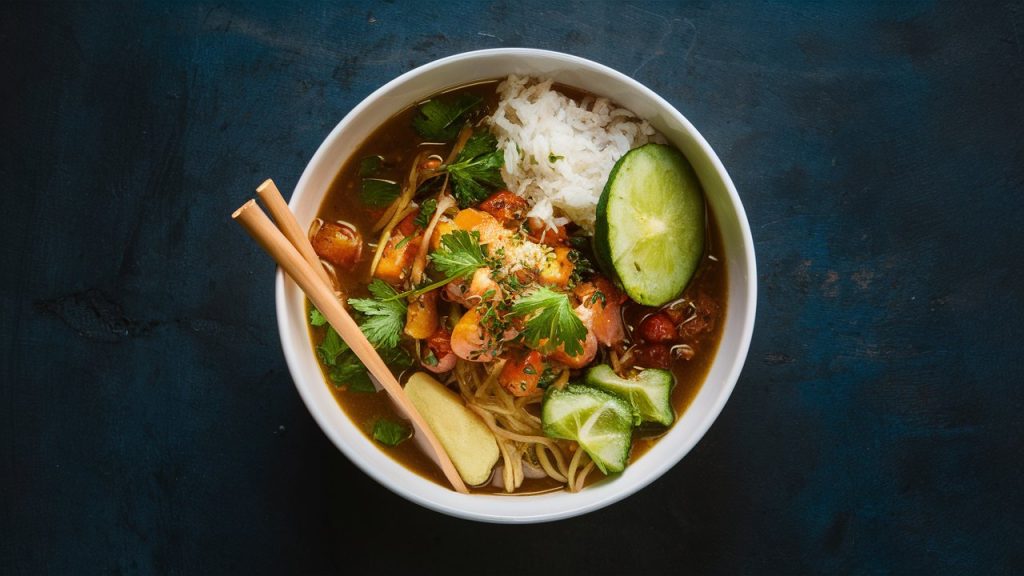
Traditional Thai food varies significantly from region to region, each area offering its unique specialties.
Northern Thai Cuisine
Northern Thai cuisine, influenced by Burmese and Lao flavors, is characterized by milder dishes with herbal notes. Khao Soi, a coconut curry noodle soup, is a famous dish from this region.
Southern Thai Cuisine
Southern Thai cuisine is known for its bold and spicy flavors. Dishes often feature seafood and coconut milk. Gaeng Som, a sour curry, is a popular dish in the south.
Also Read: TotK Food Recipes: Discover Irresistible and Flavorful Dishes
Final Thoughts
Traditional Thai food is a rich tapestry of flavors, ingredients, and culinary techniques. From the bustling street food stalls to the serene home kitchens, it tells the story of Thailand’s culture and history. By exploring traditional Thai food, you not only enjoy delicious meals but also gain a deeper appreciation for the art of Thai cooking. So, embark on this flavorful journey and discover why traditional Thai food is celebrated around the world. Whether you’re savoring a spicy Tom Yum soup or enjoying sweet Mango Sticky Rice, the authentic flavors and spices of traditional Thai food will leave a lasting impression.

